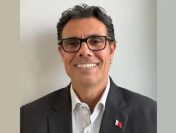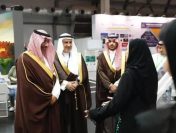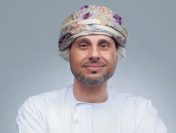The Gunn Report, that takes cognizance of work that has won at various prominent global and regional awards, has released its ‘Cases for Creativity 2014’. The report identifies campaigns that have won both a Cannes Gold Lion for creativity and a 2014 Gold Effie for effectiveness. It includes 12 cases that not only highlight the power of creativity to drive effectiveness by being sharable, but the even greater effectiveness in continuing to share what agencies create.
From the region, UAE-based Memac Ogilvy’s ‘The Autocomplete Truth’, done for UN Women, has featured in the report.
Representing the high watermark of advertising achievement, the 12 campaigns showed the ability for creativity in all its forms to drive extraordinary results. The campaigns created by several agencies including BBDO, BETC, Leo Burnett, McCann, Ogilvy & Mather, Saatchi & Saatchi and TBWA hail also from Argentina, Australia, Brazil, France, New Zealand, Peru and USA.
The other 11 cases for creativity are:
1. ‘A Boy And His Atom’ for IBM by Ogilvy & Mather, USA
2. ‘Baby&Me’ for Evian by BETC Paris, France
3. ‘Bentley Burial’ for Brazilian Association of Organ Transplants by Leo Burnett Tailor Made, Brazil
4. ‘Catch a Million’ for DB Breweries by Saatchi & Saatchi, New Zealand
5. ‘Dumb Ways to Die’ for Metro Trains Melbourne by McCann Melbourne, Australia
6. ‘Happy ID for Coca-Cola’ by McCann Erickson, Peru
7. ‘Mistakes’ for New Zealand Transport Agency by Clemenger BBDO Wellington, New Zealand
8. ‘Potable Water Generator’ for Universidad de Ingeniería y Tecnología by Mayo Publicidad, Peru
9. ‘Share A Coke’ for Coca-Cola by Ogilvy & Mather Sydney, Australia
10. ‘The 1000 Miles of Luca’ for Consejo Publicitario Argentino by TBWA, Argentina
11. ‘The Unlaunch of the Volkswagen Kombi’ for Volkswagen by Almap BBDO, Brazil
Author James Hurman makes a special mention on the meritocracy of sharing. “The only way you get them to share is by doing something truly great. Something that people – normal, ordinary people – find so compelling that they pass it on. It’s a high benchmark,” he said.
Giving the reference of Ogilvy& Mather Sydney’s ‘Share A Coke’ campaign, Mr Hurman says that usually advertisements once made and recognized are left, with agencies moving on to the next project. However, the same was not the case for Coca Cola which decided to recognize the value of the ‘Share a Coke’ idea and elected to export it to markets across the globe. The campaign which won a gold Lion also won four Effies in four countries – China, Egypt, Malaysia and Belgium.
“Advertising is a throwaway culture. We have brilliant, transformative ideas for our clients and as soon as they’ve won their awards we discard them. What Coca-Cola has shown is the value to be gained from taking our best work and sharing it onwards,” Mr Hurman added.
A Closer Look At ‘The Autocomplete Truth’
The Challenge
In today’s modern age, it’s almost unthinkable to consider gender inequality as a persisting issue. UN Women however, sees that despite decades of global advancement, discrimination against women is still rampant worldwide. This needed to be laid bare to audiences in both developed and developing societies, in the effort to reignite a conversation everyone thought was resolved. Using Google’s autocomplete function, fed by over 6 billion searches daily, the campaign held up a mirror to the world and exposed the hidden truth on gender bias that still prevails today. The shocking search results became the faces of the integrated campaign, driving men and women to debate the topic on social media, TV talk shows, radio stations, blogs, PR summits and in classrooms worldwide. Through the campaign hashtag (#womenshould), Memac Ogilvy transformed the globe into one enormous UN forum for the people, paving the way for real change.
The Solution
The campaign was launched through Press & Outdoor, revealing for the first time the shocking results about women, which initiated people to join a global discussion on gender equality through the campaign hashtag (#womenshould). The agency then expanded the conversation through an online film, which contrasts the milestones of women over the last century with today’s search results. It seeded this film across news sites and blogs in various languages. The agency collaborated with educational institutions around the world, inspiring debates as part of their curriculum. The exposure was maximized through key international PR events (2013 Global PR Summit), which further encouraged a debate on social media. Through an integrated PR strategy and impactful imagery, the message traveled far beyond the borders of print, transcending through multiple channels which all worked together to transform the world into one enormous UN forum for the people, with social media at the center of it all.
The Results
The Most Shared Ad of 2013 (Adweek). Social Good Campaign of 2013 (Ad Council). The campaign reached 1.2 Billion Global Impressions with over 224 Million Twitter Impressions. More than just mass media coverage in every continent (BBC, The Guardian, Time, Huffington Post, CNN, Times of India, Metro Sweden, Folha de Sao Paulo and countless more) it drove men and women to debate the topic on social media, TV shows, radio stations, blogs, PR summits and in classrooms worldwide, transforming established media channels into one collective forum for debate on gender equality. With a few simple facts, the integrated campaign made people rethink the state of gender equality today and helped put back the topic on the global agenda.




